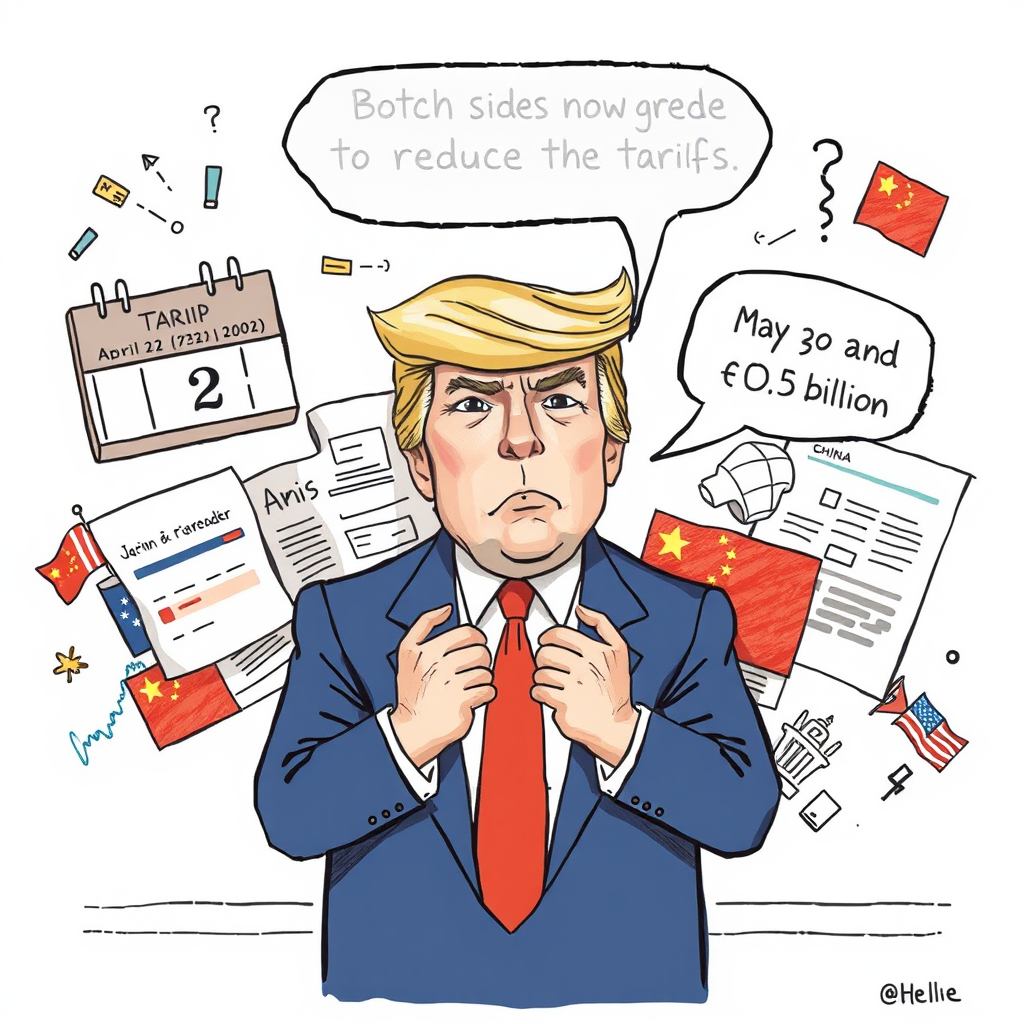Trump Admits Mix-Up in Trade War Details

In a somewhat disjointed speech on Monday, President Donald Trump discussed negotiations with China that had temporarily halted an escalating tariff trade war. However, his remarks revealed a degree of confusion and misrepresentation regarding the details of the talks. Trump initially stated, ‘Both sides now agreed to reduce the tariffs imposed. After April 2nd, to 10% for 90 days as negotiators continue.’ This statement was made on May 12, over a month after the mentioned date.
Trump went on to assert that China had been severely impacted by the negotiations, claiming that they were closing factories and experiencing unrest. He also mentioned a previous negotiation from his first administration, referencing former Secretary of Agriculture Sonny Perdue. Trump recalled a deal where China was supposed to open its country to trade with the United States but allegedly backed out at the last moment. However, it’s important to note that China and the U.S. have had diplomatic and trade relations since 1979, as documented by the Library of Congress.
Trump’s confusion became more apparent when he admitted to misunderstanding the agreed-upon tariff amounts. He stated that he thought China had agreed to a $50 billion deal when, in reality, it was $15 billion. This misunderstanding led to a heated exchange where Trump insisted on the higher figure. He also claimed that China was honoring the deal until President Joe Biden took office, at which point trade was disrupted due to the COVID-19 pandemic. Trump’s version of events is questionable, as the pandemic’s impact on trade was a global issue, not a political one.
Trump’s speech was a mix of bravado and confusion, painting a picture of a deal that was more significant than it actually was. His insistence on the $50 billion figure, despite it being a misunderstanding, and his blame on Biden for the disruption in trade, seem to be more about political posturing than factual accuracy. The former president’s tendency to exaggerate and misrepresent facts is a concerning pattern that can mislead the public and undermine the integrity of diplomatic negotiations. It’s crucial for leaders to communicate clearly and honestly, especially when it comes to matters as complex and impactful as international trade.